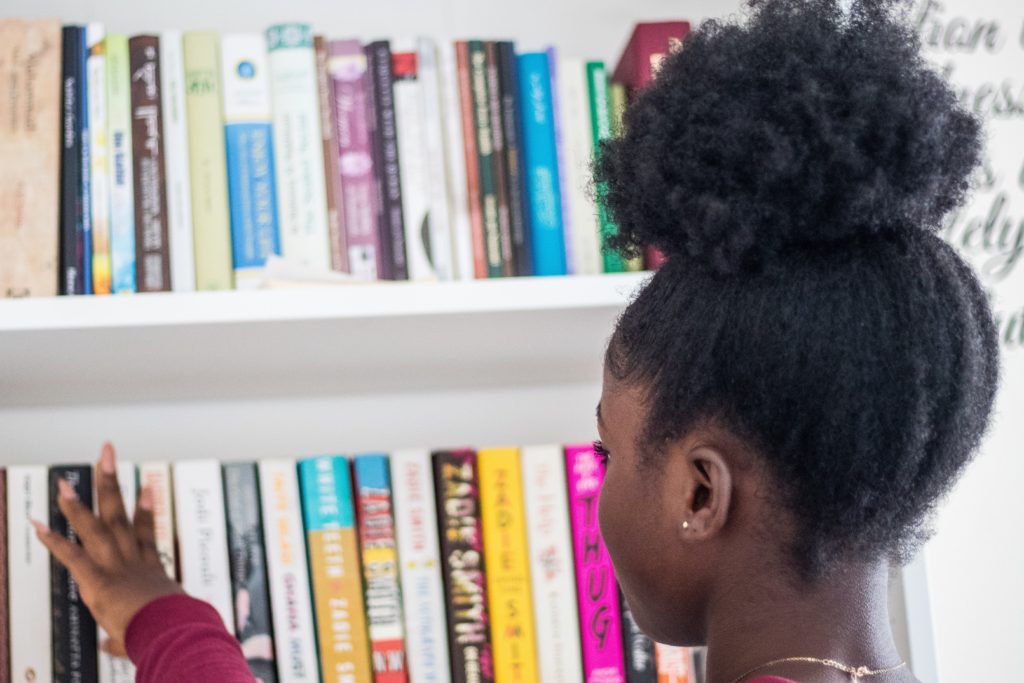
Have you ever read a book that changed your life by exposing your biases? Every summer, I read books, usually nonfiction books such as self-help, personal finances, and autobiographies. The autobiographies are often a part of pop culture because of the shock factor. A few books truly made imprints in my mind, like The Holy Bible, Antoine Q. Fisher’s Finding Fish: A Memoir, Respect: The Life of Aretha Franklin by David Ritz, Every Little Step: My Story by Bobby Brown, Lisa Renee Pitts, et al., and Night by Elie Wiesel. I love reading autobiographies and biographies because it’s hard for me to understand how someone overcame a humble beginning to becoming an outstanding person within their profession. Very few books have brought me to tears like the books I read this summer. The books I read addressed racial inequality and racial justice. These books not only appealed to my emotions, but to my mind. I could not stop thinking about these books and how I could make a change. This summer will go down in history, written in modern-day times as the summer of Covid-19, George Floyd, and Black Lives Matter(BLM)-a time of global unrest.
One week within my summer break as a teacher, I was going to the hospital for my pre-assessment for surgery, including Covid-19 testing. The nurse stated, if I didn’t get a phone call concerning my results, I was to report to the hospital for surgery the next week. After having major surgery, I was recovering at home when I received a call. The call was from one of my closest college friends, and she was telling me about Black Lives Matter being painted on the street in front of the White House. I asked, “What! What, are you talking about?” She told me to turn on the television, and I did. I was in shock witnessing painters painting Black Lives Matter with yellow paint on a black asphalt street. She continued to explain that she received countless emails from the people she worked with, stating apologies, and wanting to know more about African American history. My friend, who is the director of a satellite children’s mental hospital, is very strong and opinionated. At meetings with her team and supervisor, she addressed race issues and encouraged others to do their own research. As she was talking about it, I was still confused. Race inequality being discussed in America?
I was confused because the racial tension had not reached this height in my time since Rodney King and Michael Brown. My friend continued, “Corporations are supporting this movement, and I am keeping notes of who is supporting it. If corporations are not supporting the movement, I am not spending money with their company. This is the time to address the problem and fix it.” For years, I recognized there have been racial issues, but I have lived in my bubble. In my first year of teaching at Stivers Schools for the Arts (2017), my African American students were reading The Hate They Give by Angie Thomas and had strong opinions about police brutality. I needed to take a stand-not to cover my eyes and continue to live in my bubble. I couldn’t live in my bubble because OCTELA (Ohio Council of Teachers of English Language Arts) was sending emails addressing BLM. After talking to my friend, I received several thread notifications from OCTELA about BLM, and I did not know what to do. One email from OCTELA wanted a statement from the diversity liaison chairperson; that chairperson was me. Okay, I was not prepared for this. I was recovering from surgery, and my head was hurting. I only knew what my friend had told me and my past experience. I wrote a passionate statement with my memories of growing up learning about Black History and a call to action of making a change at the end. The feedback was positive, and the executive board decided to read a book addressing racial inequality.
The Immortal Life of Henrietta Lacks
Before the book club started, I had begun reading The Immortal Life of Henrietta Lacks by Rebecca Skloot. Chapter after chapter, my heartfelt for Henrietta Lacks. At a very early age, she lost her mother and was divided from her siblings to live with her sharecropper grandfather. Henrietta grew up with her first cousin, David, whom she later married while in her teens. They had five children together and moved from their hometown to Baltimore, MD. In the early 1950s, she learned that she had cervical cancer while raising her young family. While she received treatment at John Hopkins Hospital in Baltimore for her cancer, her doctors sliced out a piece of her cancer and conducted research on it. Henrietta’s cancer cells grew and prospered, hence the name of the immortal life of her cells. Henrietta died leaving behind a husband and five young children. Unfortunately, Henrietta’s children grew up with limited education and a series of abuse. Researchers used Henrietta’s cells to study cancer and medication, but Henrietta’s family never were recognized or monetized her cells.
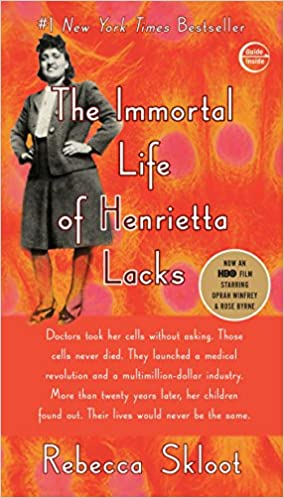
The author, Rebecca Skloot, did a great job depicting the picture of who Henrietta was and showing how African Americans have a long, dark history with medical experimentation. Skloot, who is a medical journalist, writes from a medical point of view. Reading the book was an emotional read because I felt angry about the medical treatment that Henrietta received and how her cells were exploited and sold without her family’s knowledge. I read passages to my mother, and she could not bear to hear about Henrietta. After reading one passage, my mom said, “It’s so sad to hear about Henrietta. Her family is just ill-educated-they were just sharecroppers; they just didn’t know.” Reading this book also made me think about race and gender. Why Henrietta’s, a Black woman, cells? Why doesn’t Henrietta’s cell die? What is it about Black cells?
My cousin and aunt visited me in June to assist me after surgery. It was a much-needed visit because I was able to talk to someone, and we discussed race issues in America. My cousin is a school nurse, and my aunt is a recently retired elementary school principal. My cousin suggested taking an African history class on Zoom, and I agreed. Before leaving, my aunt told me to watch the Netflix documentary 13th and the movie Selma. I had never viewed either one, but I was open to watching them since I was at home recovering with time. Over the course of two days, I watched 13th and Becoming on Netflix. Watching 13th opened my eyes to a whole new world of systemic racism and how there were laws and statutes to combat “War on Blacks” after the civil rights movements.
Just Mercy
Just Mercy, a book by Bryan Stevenson, is the most profound book I have ever read, and it was a snapshot of the “War on Blacks.” From the introduction to the epilogue, the book is an emotional rollercoaster. Every few pages, I would lay the book on my chest and ask why? I would silently say a prayer seeking knowledge and understanding of the situation that was in the book. The book begins with Bryan being a young law student volunteering in Monroe, Alabama to help get Walter McMillian off of death row for a murder he did not commit. Walter was an African American man with a business that was wrongfully accused of murder after he was involved in a marital affair with a White woman. Stevenson worked on Walter’s case during the 1990s. Yes, this was modern times, after the civil rights movement. Walter’s case was in the hometown of Harper Lee, the writer of To Kill a Mockingbird. How ironic!
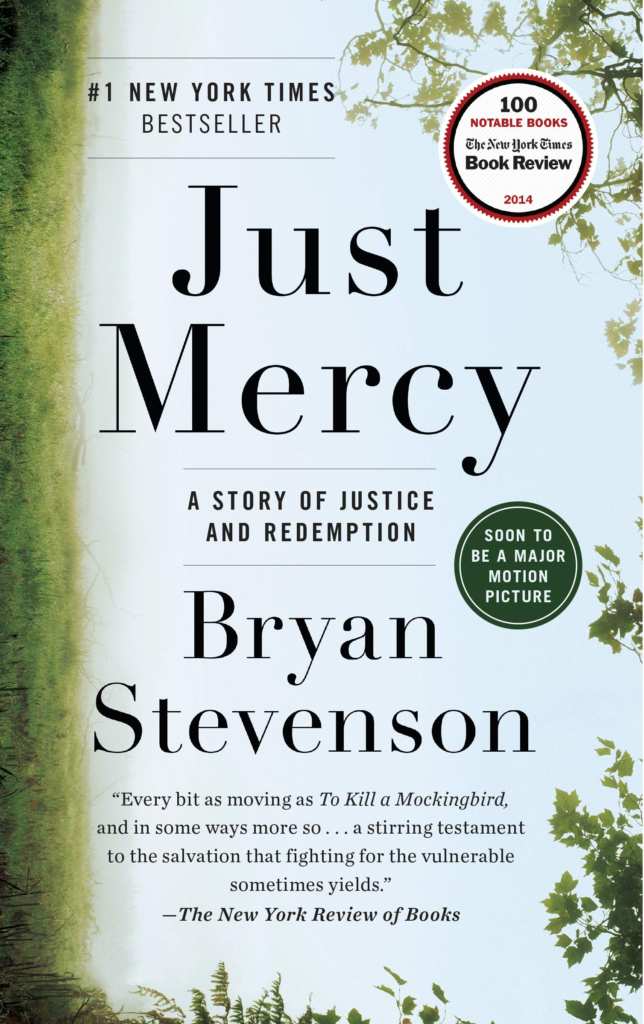
Besides Walter’s case, Stevenson writes about cases that involved juveniles, impoverished, and disabled people. Each story tells how Black people with limited education were wrongfully accused and given long-term, unjust sentencing. The atrocities inflicted on these people were inhumane and pure evil. One example from the book that will stay with me forever was forms of punishment. If inmates were misbehaving, they had to lay in a casket with a hole in the hot summer sun, or they had to stand with their arms chained above their heads for hours. I can only imagine the hardships the inmate endured. These examples still bring tears to my eyes as I write them. The book was a tearjerker and extremely hard to read because it made me examine my biases. How much do I really know about privatized prisons? How many African Americans were wrongfully imprisoned or given extreme jail time? Why does the media criminalize African Americans? The poor? The disabled? What in my past has created the narrative of African Americans in prison? I have heard the “pipeline to prison” term; it is very real! What can I do as a teacher to keep my students from entering the “pipeline to prison” lifestyle? Can I help my students or is systemic racism too much for me to handle by myself?
400:An Afrikan Epic
While I was reading Just Mercy and asking myself social justice questions, I was also taking a course named 400: An Afrikan Epic by Dr. Melissa Crum. My cousin also named Melissa, invited me to the course that started in July. The workbook, with the same title as the course, took you from Africa to modern America. I learned so much about Dogon and how people all over the world would travel to West Africa to learn about cosmology and sciences at universities that were taught by the native people. I learned that five million slaves were shipped to Brazil, while only a half-million were shipped to the USA. After slavery in 1865, during the reconstruction years, there were more African Americans in the USA than any other race. Out of 44 million people, 40 million were African Americans, and they were gaining seats in legislation and in their small towns in the south. Then the Jim Crow laws were introduced, and lynching became more prevalent.
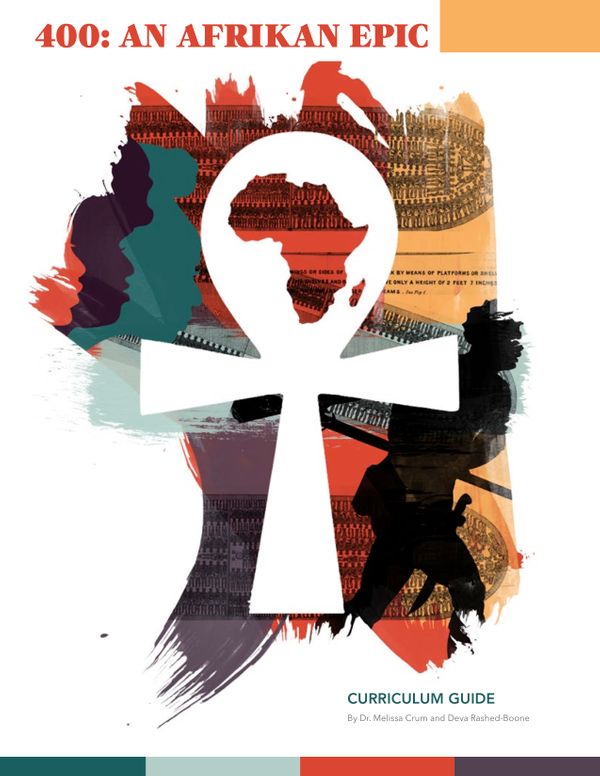
The course also introduced me to the African god and goddess. Dr. Crum sent videos of how the African god and goddess play a role in today’s society. Even the largest entertainer of today, Beyonce’ Knowles, references the god and goddess in her songs and music videos. I thoroughly enjoyed how Black women have made strides in justice and equity. The workbook honored Queen Nzinga, Ida B. Wells, Dr. Anglea Y. Davis, and Chimamanda Ngozi Adichie. I felt proud reading how African Queen Nzinga learned how to speak Portuguese in the 1500s and learned military strategy to protect her people from being attacked and enslaved. After witnessing three African American men being lynched in Memphis, TN for owning successful grocery stores, Ida B. Wells gave a voice to the murdered men and fought for the rights of everyone in America. The class was so informative, so full of soul that it left me with more questions. Who is Sarah Baartman, and why didn’t I learn about her in school? Teach me about the Dogon culture. What is Ma’afa, and how can Americans reverse the effects of it? How does Julius Caesar play a role in African culture? I taught the play written by William Shakespeare for many years, and now I want to know more. Why has so much of this history been made a secret?
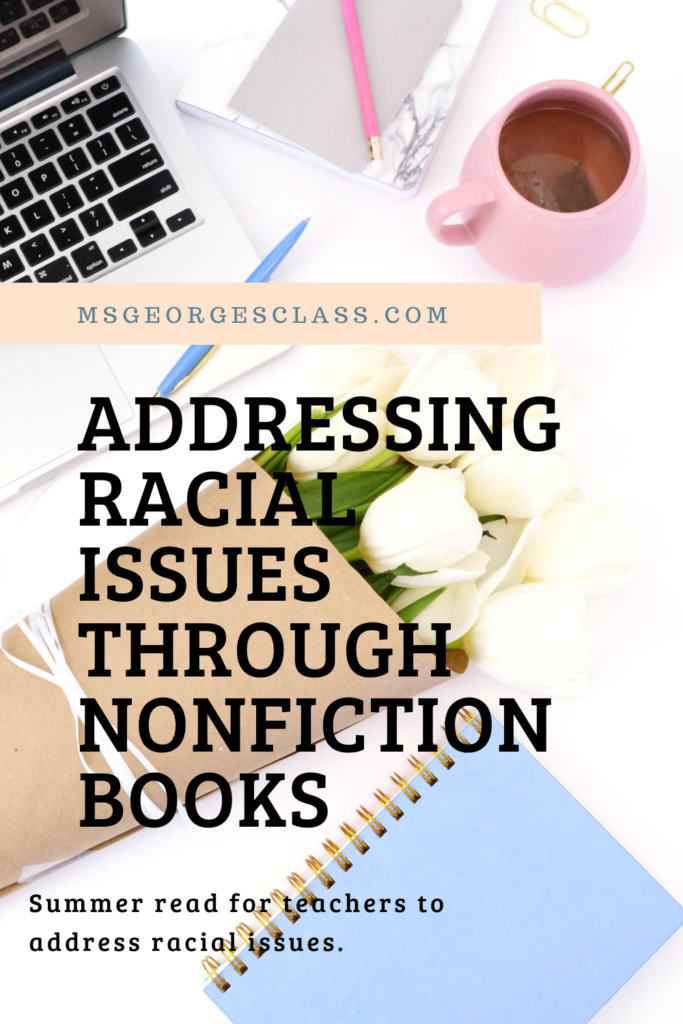
As you can see, so much of the unfair treatment, history, culture, and land has been kept a secret. As I read these books about Henrietta, Walter, and African American people, I was full of anger, sadness, pride, rejection, and unjust treatment. My prayer line, a group of three African American women in their 60s, said they don’t want to read these books because they lived during it. But what about the generations that did not live through these times? That is why I applaud OCTELA for opening my eyes and other teachers’ biases within the organization. If it was not for this book club, my close friend, and cousin, I would have read a teacher professional book or an autobiography on a pop culture icon. This summer, I read books that matter and that I can use within my class to address race problems. No more turning a blind eye to race relations within the classroom. I will embrace it and listen to students talk about it. Then I will have them write their feelings and have them devise a plan to tackle the race issue.
OCTELA made me the committee chairperson of their subcommittee titled Anti-Racist/Inclusion. It’s a group of about six ladies that are geared to making a difference with race relations. We have to create a new name, a mission statement, and a lexicon. We are going to make a difference! Yesterday, I received news that a grant I applied for OCTELA was awarded to the organization. It was a lot of work preparing for the award, but in the end, NCTE (National Council of Teachers of English) saw that my application was most deserving. After reading these books, I have begun donating to EIJ (Bryan Stevenson’s organization), Justice for Juveniles, Dayton Unit of NAACP, and Artemis Center (Domestic Violence). My heart and mind are forever changed through the passion I have for the meek, impoverished, and people who have experienced racial injustice.


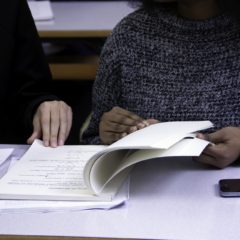
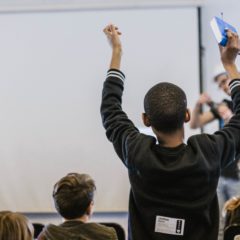
Leave a Reply